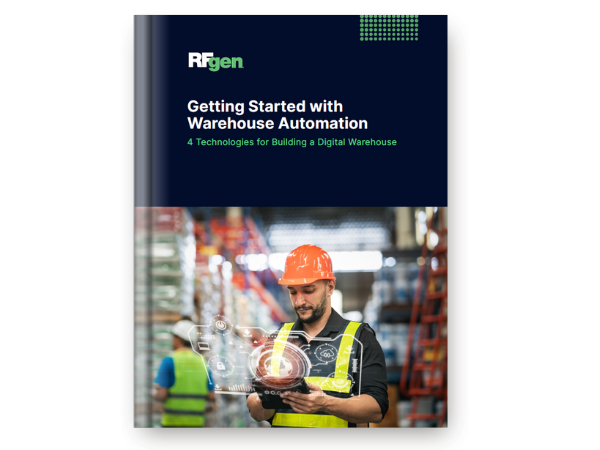Pfizer Supply Chain Modernization Leading The Way In Healthcare
- Supply Chain
- Pharmaceuticals

Imagine a world where every pill, every vaccine, and every therapeutic breakthrough reaches those who need them most, regardless of distance or difficulty. This isn’t just a hopeful vision, but the prime objective of Pfizer’s supply chain modernization.
At the heart of Pfizer’s mission lies a delicate balance of science, strategy, and innovation. This ensures that medicines navigate the globe to arrive in the hands of patients where and when they need them.
The story of the Pfizer supply chain goes beyond just moving products. Join us as we explore how cutting-edge technology and a dedication to science converge to deliver lifesaving medications around the world.
Success Relies on Global Scale and Excellence
Pfizer’s Global Supply (PGS) network is a testament to its unwavering commitment to healthcare excellence at scale. To ensure its place at the forefront of pharmaceutical manufacturing and supply chain management, Pfizer:
Operates 58 Manufacturing Sites Worldwide
Spanning continents, these sites are equipped with cutting-edge technology to ensure the production of high-quality medicines. Efficient supply chain technology and manufacturing processes are two major factors that contributed to over $58.4 billion in revenue in 2023 alone.
Leveraging diverse locations ensures redundancy and resilience against regional disruptions. Meanwhile, incorporating automation, digital monitoring, and data analytics assist in optimizing production.
Harnesses Data for Decision-Making
Pfizer uses sophisticated data analytics to streamline its operations and enhance decision-making processes. Real-time insights allow for swift adjustments in production schedules based on demand and supply dynamics.
By using predictive analytics based on past performance, Pfizer can anticipate future challenges and plan accordingly.

Get live monitoring with real-time supply chain KPI dashboards
SCHEDULE A DEMO »Focuses on Quality, Safety, and Value
Every Pfizer product undergoes rigorous quality control measures to ensure patient safety and efficacy. Quality assurance programs help each product adhere to the highest industry standards.
In addition, continuous improvement initiatives help compliance go beyond baseline regulatory requirements, enhancing product value.
Addressing Supply Chain Challenges with Science
Large supply chains must navigate significant complexity to provide a consistent supply of their products. Fluctuating demand and unforeseen disruptions, such as drug shortages, must be met with a unique blend of science and strategy.
For Pfizer, addressing these challenges reactively isn’t enough. Instead, the business works proactively to address shortages, especially with critical injectable medicines in clinical settings. Real-time supply chain data is key to this approach.

Inside Johnson & Johnson’s Supply Chain Operations
LEARN MORE »To expedite supply recovery, the company:
Proactively Addresses Drug Shortages
Collecting and utilizing comprehensive data is the only way to understand supply chain operations. This is how Pfizer predicts potential shortages before they happen.
In addition, strategic partnerships with key healthcare bodies helps ensure collaboration in developing swift solutions that enable fast supply recovery.
Maintains Compliance with Extended-Use Dating Support
Extended-Use Dating Support refers to guidelines that allow for the use of products or materials beyond their original expiration date, under certain conditions. Compliance with these guidelines is important for product viability in life sciences and pharmaceuticals.
Pfizer’s data plays an integral role in compliance. By providing regulatory authorities with data to support the extended use of products in the supply chain, Pfizer help medicines remain available during critical periods.
A strong working relationship with the regulatory bodies remains essential to Pfizer’s product compliance and safety.
Invests in Advanced Technology
Pfizer could not achieve its astounding success without technology. By investing in automation technologies for the supply chain, the business enhances efficiency, transparency, production capabilities, and resilience.
Developing these technological capabilities quickly and aggressively enables greater agility in the face of the unexpected, allowing Pfizer to future-proof its supply chain.

Getting Started with Warehouse Automation
DOWNLOAD NOW »Supports Supply Recovery
Central to nimble supply recovery are two elements: rapid response teams and science-based solutions.
Dedicated rapid response teams are tasked with addressing immediate supply chain disruptions. A combination of technology and human genius makes these teams successful.
Meanwhile, science-based solutions allow Pfizer to leverage its scientific expertise to find innovative solutions for maintaining supply during times of crisis.
Transformation in the Wake of COVID-19

The COVID-19 pandemic served as a catalyst for major transformation within Pfizer. In a short matter of time, the Pfizer vaccine became a household name.
But beyond a fortunate market opportunity, the unprecedented global pandemic prompted a reevaluation of operational models within the company and accelerated the adoption of more flexible, resilient supply chain practices. Aggressive scaling up of production was required to ensure availability worldwide.
The transformation took place due to a sudden unprecedented demand for its vaccine. This necessitated expanding its manufacturing, particularly at its Kalamazoo, Michigan site, where COVID-19 vaccines and treatments were made.
In addition, distribution had to be expanded through global partnerships. Pfizer also adapted its logistics, employing ultra-cold storage solutions for vaccine transportation and direct delivery models to expedite delivery.
The Next Generation of Manufacturing
Because of the pandemic, Pfizer began to embrace a broader vision for the future of pharmaceutical manufacturing. Innovations developed during this period set new industry benchmarks.
Two of these innovations include the first large-scale lipid nanoparticle (LNP) manufacturing system and advanced shipping containers for ultra-cold vaccines. The LNP manufacturing system enables the production of mRNA vaccines at scale, setting the pace for future lipid-based therapies.
As for ultra-cold shipping solutions, these involve creating shipping containers that double as ultra-cold freezers so that vaccines maintain their integrity during transport. This innovation has proven crucial for expanding vaccine access to the hardest-to-reach areas, such as rural and undeveloped communities.
Originally devised for COVID-19 vaccines, these technological advances are now being applied to a wider range of products, including gene therapies, oncology treatments, and other mRNA medicines.
Scaling Operations for Resilience
The sheer scale of Pfizer’s supply chain has been a critical factor in its ability to minimize risk and respond to global health crises. With 36 manufacturing sites, 11 distribution and logistics centers, and over 31,000 dedicated workers, Pfizer’s operations enable the annual supply of more than 50 billion doses of medicine across 180 countries.
This expansive network has fortified Pfizer’s supply resilience, ensuring that essential medicines reach patients without interruption.
To complement its vast supply chain, Pfizer’s strategy is to diversify suppliers and establish parallel supply chains to assure resilience.
Engaging a broad network of suppliers minimizes risk by avoiding reliance on a single source for raw materials and components. This way, regional disruptions have greatly reduced impact on supply chain management.
The company also established parallel supply chains in major markets in both the United States and Europe to buffer against localized uncertainty. Stocking these dual supply chains requires thoughtful over-production and strategic stockpiling of critical medicines to prevent unforeseen shortages.
Innovation in Digital Supply Chain Management
Digital technologies have become integral to Pfizer’s supply chain strategy. To achieve improvements in service and cycle times, the company focused on enhancing visibility and gaining live insights into operational data through technological means.
These technologies include:
- Digital tool integration for real-time tracking of shipments while ensuring timely delivery and quality control with less than 0.1% production loss.
- High-quality data collection for supply chain analytics and predictive planning.
- Cold chain technology for safe delivery of medicines requiring cold and ultra-cold storage.
- IoT devices integrated with cloud analytics platforms to ensure capture of environmental information, temperature, light levels, and more during shipment.
- Partnering with Zipline to overcome geographic and infrastructural hurdles in countries like Ghana by pioneering drone deliveries.
- Expanding drone deliveries to other aspects of its supply chain deliveries for underserved populations.

Perfect Data Collection with 100% Paperless Inventory Control
GET THE GUIDE »Environmental Responsibility and Community Engagement
Pfizer’s commitment to sustainability and social responsibility is evident in its approach to environmentally efficient manufacturing.
The LEED Platinum-certified facility in Suzhou, China, offers a shining example of green design in pharmaceutical manufacturing. It also reflects a broader commitment to reducing Pfizer’s environmental footprint.
To further reduce its carbon footprint, Pfizer carefully manages waste and water conservation across its operations. Employing energy-efficient technologies and renewable energy resources help drive sustainability initiatives.
These green programs also foster a future where innovation in science and manufacturing thrives.

Sustainable, Smart, and Lean: Navigating New Supply Chain Frontiers
READ NOW »A Vision for the Future
As Pfizer continues to navigate the challenges and opportunities of a rapidly evolving global landscape, the company’s supply chain stands as a testament to the power of innovation and resilience.
Through strategic investments in technology, sustainability, and workforce development, Pfizer is not just responding to the demands of today, but is also shaping the future of pharmaceutical manufacturing and distribution. In a world where the unexpected has become the norm, Pfizer’s supply chain strategy offers a blueprint for how science, technology, and visionary leadership can converge to build unprecedented resilience in supply chain management.




